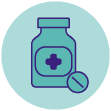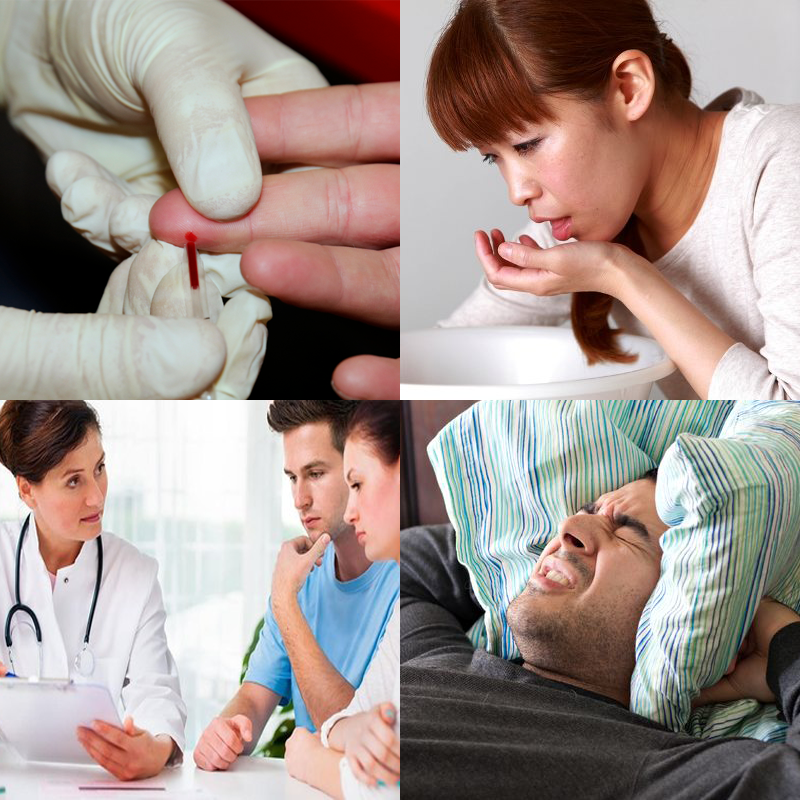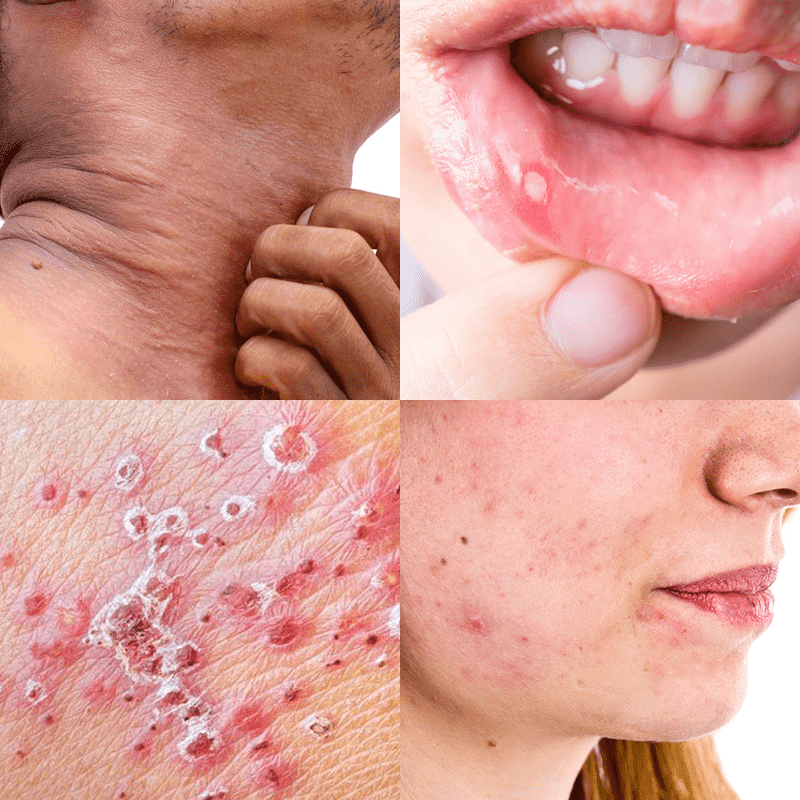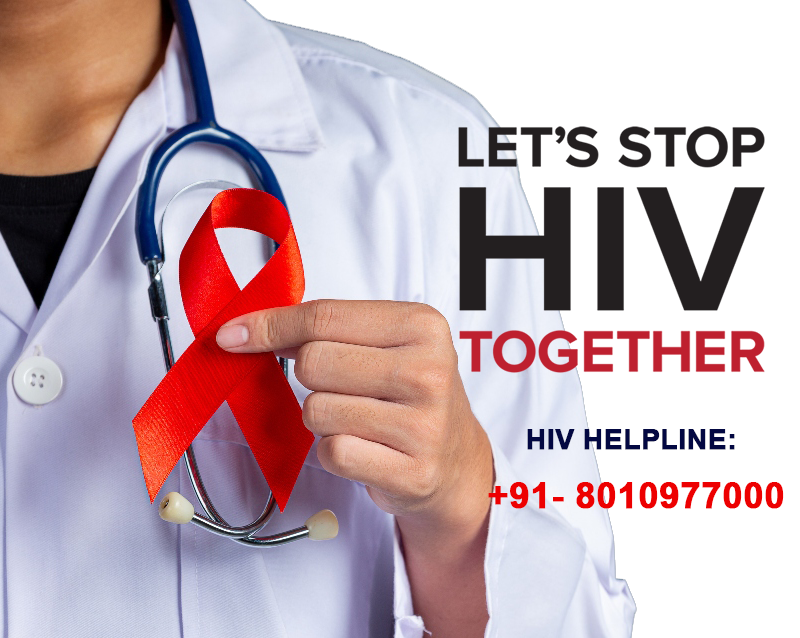- WHAT IS S.T.D. OR S.T.I? STD stands for Sexually Transmitted Disease. Doctors also use STI (Sexually Transmitted Infection) in place of STD in the same context. As the name suggests, these diseases transmit into human body through a sexual act between two or more people. The chances become high if any of the person involved in sexual act is already suffering from any sexual disease.
- WHAT IS HIV? HIV, short form of "Human Immunodeficiency Virus" is an infectious virus which destroys the white blood cells and makes the body's immune system weak. In such a condition, other diseases attack the body and it fails to fight back the infections. If the treatment for HIV is not initiated and continued, the person slowly moves on to the next stage - AIDS - that eventually results could be fatal, if not managed.
- WHAT IS AIDS? AIDS is the short form of Acquired Immunodeficiency Syndrome, caused by HIV. Our immune system consists of some white blood cells called T-Lymphocyte ("T-Cells"), that protects our body from infections and diseases. They continue to do so until one day our body loses a battle with virus called HIV. Eventually, this virus leads to the dreadful disease called AIDS.
-
 Pre & Post Test
Pre & Post Test
Counseling Available -
 Dr Consult
Dr Consult
Online Available -
 Therapy Session for
Therapy Session for
Anxiety Management Available -
 Unlimited Support
Unlimited Support
by Counselors Available
 Test
How to get tested
Test
How to get tested
 Counselling
Book HIV Counselors Nearby
Counselling
Book HIV Counselors Nearby
 PrEP
How to get PrEP
PrEP
How to get PrEP
 Undetectable info
Treatment as prevention
Undetectable info
Treatment as prevention

Up to 9 in 10 people who acquire HIV will have some symptoms soon after infection. This is known as SEROCONVERSION ILLNESS. It includes:
- Fever
- Rashes
- Severe Headache
- Feeling Sick
- Body Aches and Pains
- Tiredness
- Mouth Ulcers
- Sore Throat
- Night Sweats
- Weight Loss
- Diarrhea
- Nausea
- Vomiting
- Swollen Lymph Nodes and
- shingles
- Bleeding Gums.
Not everyone has these symptoms and they're easily mistaken for flu or other common illnesses. If it's not treated, HIV will eventually damage a person's immune system until they start to develop serious illnesses or infections. Some people faces problem of Herpes
WHAT IS HERPES?
Herpes results from infection with the herpes simplex virus (HSV). It causes sores or blisters to form in or around the mouth or genitals, as well as other symptoms. Oral herpes causes blisters, sometimes called fever sores or cold sores, to develop in or around the lips and mouth. Genital Herpes causes sores that can develop on the penis, around or inside the vagina, on the buttocks, or on the anus, though they can form on other areas of skin as well. Herpes can also cause pain when urinating and changes in vaginal discharge.
Herpes simplex virus spread from person to person through close contact. After the first outbreak, the virus moves from the skin cells to nerve cells and creates health complications, such as:
- Pain or itching. You may experience pain and tenderness in your genital area until the infection clears.
- Small red bumps or tiny white blisters. These may appear a few days to a few weeks after infection.
- Ulcers. These may form when blisters rupture and ooze or bleed.
- Scabs. Formation of rough surface or hardening around infected tissues
Dr. Monga Medi Clinic has earned distinction in the treatment of Human Immunodeficiency Virus (HIV) and Herpes Simplex Virus (HSV). Committed to provide complete care and treatment to its patients.
PEP (Post-Exposure Prophylaxis) is a preventive treatment for individuals who may have been exposed to HIV.PEP should be initiated as soon as possible, ideally within 72 hours of potential exposure, to maximize its effectiveness.PEP has been shown to significantly reduce the risk of HIV infection when taken correctly and in a timely manner.
- Protect Yourself During Sex
- Protect Yourself If You Inject Drugs
- Protect Others If You Have HIV
- Protect Mother-to-Child Transmission
- Use Condoms - During Sexual Encounters
- Take PEP - Prevent HIV after a possible exposure, start within 72 hours
- Take PrEP - Taking PrEP before being exposed to HIV means there's enough drug inside you to block HIV if it gets into your body.
You can make an appointment to speak with our doctor if you believe you had sexual contact with someone who is HIV positive or is at high risk of becoming HIV positive. Please keep in mind that PEP is only required in a few high-risk circumstances. aloong with you can also consult for best std doctor in delhi, std doctor specialist near me, best std doctor near me, venereologist, std testing in delhi, best doctor for sexually transmitted diseases, std clinic delhi
Dr. Monga's Come for Second Opinion HIV AIDS

-
 Dhirendra
Banker, New Delhi
I SHALL EVER REMAIN THANKFUL TO YOU!
In that heat of the moment, we went ahead and had sex. Unprotected. After a week, I noticed few rashes on my thighs. Got really worried. I was sure I have got in touch with HIV!! While doing my 'research' on google, I found lot many confusing answers to my problem until I came across this website and got my answers after a detailed discussion with their doctors. I shall ever remain thankful to them for guiding me properly and clearing all my doubts. And, well, those rashes were just rashes which went away in a couple of days.
Dhirendra
Banker, New Delhi
I SHALL EVER REMAIN THANKFUL TO YOU!
In that heat of the moment, we went ahead and had sex. Unprotected. After a week, I noticed few rashes on my thighs. Got really worried. I was sure I have got in touch with HIV!! While doing my 'research' on google, I found lot many confusing answers to my problem until I came across this website and got my answers after a detailed discussion with their doctors. I shall ever remain thankful to them for guiding me properly and clearing all my doubts. And, well, those rashes were just rashes which went away in a couple of days.
HOW CAN HIV INFECTION HAPPEN?
- Unprotected penetrative physical relation
- Mother to child through breastfeeding or child birth. It can happen during pregnancy as well
- Injecting drug usage with shared needles having infected blood
- Blood donations involving infected blood or organ transplants
- Infection from a patient to a healthcare worker
HOW HIV WILL NOT HAPPEN?
- From someone who is HIV negative
- Touching HIV positive person
- If you come in contact with HIV positive person's sweat, tears, urine
- From touching, hugging or shaking hands with HIV positive person
- Mutual masturbation, fingering and hand-jobs
- Using sex toys which are covered with a new condom each time you switch it with another person
- Mosquito bite
- Through air, when an HIV positive person coughs or sneezes or even spits in air.
- New or sterilized needles used for medical reason or tattooing
- Sharing swimming pools or bath tubs, showers or drinking water
- If an HIV positive person shares toilet seats, tables, door handles, cutlery, towels etc. with you.
- Through musical instruments
- With mild kissing, HIV never transfers. However, if you have bleeding gums, sores or cuts inside mouth and exchange of blood happens, HIV can happen.
South delhi
Dr Monga Medi Clinic20, National Park,
Lajpat Nagar-Part IV
WEST DELHI
Dr Monga Medi ClinicGate No.2, Pkt-1, DDA Flat.125,
Dwarka Sector 9,
Dwarka, New Delhi - 110027
GURGAON
Dr Monga Medi Clinic603, Galleria Tower,
DLF Phase-4, Gurugram




